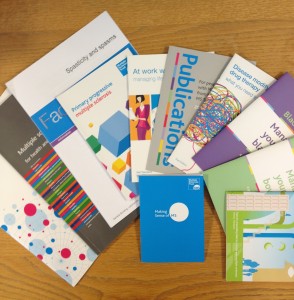The MS Trust is a wonderful charity whose principal aim is to improve the lives of people living with multiple sclerosis (MS). Not only do they provide information and support to those with MS, but they also aid health professionals working with People with MS (PwMS). They publish newsletters, participate and fund research, as well as educate health professionals. All in all the charity does a huge range of things, far more than I had anticipated when I first heard about them.
As part of this work with health professionals, the MS Trust is working alongside another organisation – ‘Therapists in MS’ (TiMS) – to produce a ‘toolkit’ to be used by allied health professionals involved in the care of people with MS. The purpose of the toolkit is to help health professionals identify and appreciate the wide range of implications MS can have on peoples’ lives, as well as provide information on the best way to manage these patients. This is where I come in.
My role this summer is to help the MS Trust and TiMS produce this toolkit. I have joined the information team, and am responsible for carrying out data collection and literary review. In other words I spend a lot of time on PubMed. I then choose the most relevant studies and pass them on to my supervisor, who is in charge of bringing everything together.
My first couple of days were spent reading up on all aspects of MS, from its pathophysiology to living with and treating the condition. This was made easier by the large number of publications that the MS Trust produce for patients and professionals alike, which all helped to give me a solid understanding of the condition.
I spent the rest of the week carrying out the research tasks – looking into a whole host of different areas. From vocational rehabilitation, linking MS with depression and changes to employment, it has already become clear to me that MS can have such an impact on peoples’ lives. I also spent a lot of time trawling government statistics websites to determine the cost of UTIs and pressure sores to the NHS. Whilst these things may seem unrelated to MS, they are both very important issues, and ones which I’m sure will be included in the toolkit once it has been completed.
For a couple of days next week I will spend time at a local MS physiotherapy centre, where I hope to get a real first-hand insight into the therapies that I have been researching and writing about. So far I am enjoying office life, and look forward to next week.
